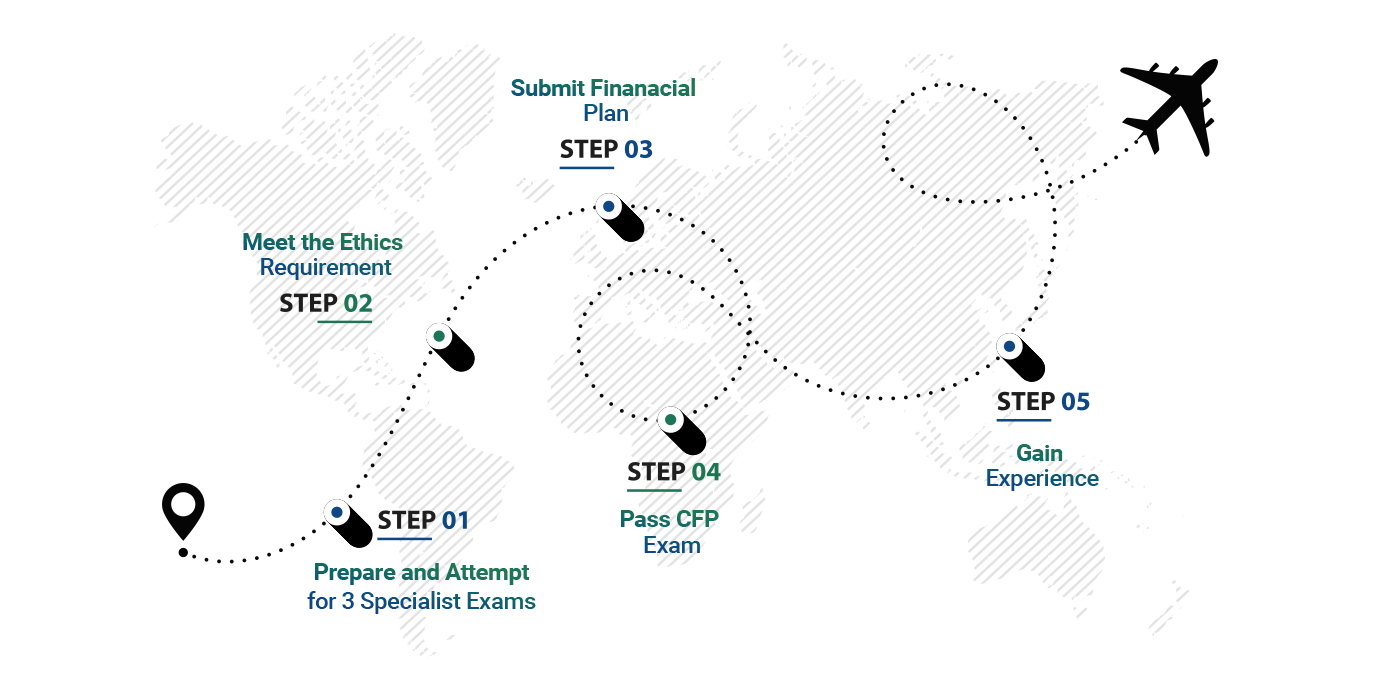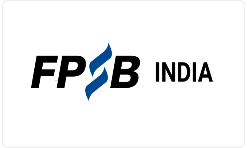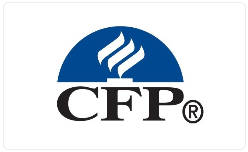Certified Financial Planner Course (CFP)
About Certified Financial Planner (CFP) Course and Certification
Certified Financial Planner (CFP) is a leading Certification globally recognized in the field of Financial Planning with over 213,000 CFP professionals. It is popular in more than 27 territories across the world. It is a professional mark for financial planners granted by the Financial Planning Standards Board (FPSB).
CFP credential stands out as the foremost global certification, coveted by those aspiring to demonstrate their unwavering dedication to the practice of competent and ethical financial planning.
CFP certification is recognized worldwide as a symbol of excellence and the Gold standard certification for financial planning.
Why CFP Course?
 Recognized Globally
Recognized Globally
 Rated as the
Rated as the Gold Standard
in Financial Planning by the Wall Street Journal
 Rated as “One of the Best Job” by U.S. News and World Report
Rated as “One of the Best Job” by U.S. News and World Report
 Valid in more than 27 territories across the world
Valid in more than 27 territories across the world
 Unique 4-in-1 Program - 1 program, 4 global personal finance certifications
Unique 4-in-1 Program - 1 program, 4 global personal finance certifications
 65% global pass rate
65% global pass rate
 Average salary package 5 – 15 lakhs p.a.
Average salary package 5 – 15 lakhs p.a.
CFP Course Subjects
 Client Financial Situation
Client Financial Situation
 Time Value of Money
Time Value of Money
 Cash Flow Demands and Conflicts
Cash Flow Demands and Conflicts
 Budget and Emergency Fund
Budget and Emergency Fund
 Debt and Financing Alternatives
Debt and Financing Alternatives
 Financial Management Strategies
Financial Management Strategies
 Asset Classes and Securities
Asset Classes and Securities
 Pooled Investment Products
Pooled Investment Products
 Principles of Investment Risk
Principles of Investment Risk
 Investment Performance Management
Investment Performance Management
 Investment Theory
Investment Theory
 Asset Allocation
Asset Allocation
 Wealth Management
Wealth Management
 Behavioral Finance
Behavioral Finance
 Objectives, Constraints and Suitability
Objectives, Constraints and Suitability
 Client Best Interest
Client Best Interest
 Economic Environment
Economic Environment
 Social and Political Environments
Social and Political Environments
 Compliance and Implications
Compliance and Implications
 Anti-Money Laundering
Anti-Money Laundering
 Retirement Principles
Retirement Principles
 Retirement Objectives
Retirement Objectives
 Retirement Needs, Analysis, and Projections
Retirement Needs, Analysis, and Projections
 Sources of Retirement Cash Flow
Sources of Retirement Cash Flow
 Retirement Cash Flow, Withdrawal Projections and Strategies
Retirement Cash Flow, Withdrawal Projections and Strategies
 International Taxation
International Taxation
 Cross Border and Source Rules
Cross Border and Source Rules
 Tax Strategies
Tax Strategies
 Accounting Standards and Research
Accounting Standards and Research
 Principles
Principles
 Risk Exposures
Risk Exposures
 Intro to Insurance
Intro to Insurance
 Insurance Company/Advisor Selection
Insurance Company/Advisor Selection
 Strategic Solution
Strategic Solution
 Estate Planning Terminology
Estate Planning Terminology
 Wealth Distribution Goals
Wealth Distribution Goals
 Estate Planning Process
Estate Planning Process
 Transfer During Life and at Death
Transfer During Life and at Death
 Planning for Incapacity
Planning for Incapacity
 Estate Planning Strategies
Estate Planning Strategies
 Financial Planning Process
Financial Planning Process
 Practice Standards
Practice Standards
 Professional Skills
Professional Skills
 Client Characteristics
Client Characteristics
 Client Engagement and Communication
Client Engagement and Communication
 Critical Thinking
Critical Thinking
 Introduction to the Discovery Process
Introduction to the Discovery Process
 Appreciative Inquiry
Appreciative Inquiry
 Discovery Process Applied
Discovery Process Applied
 Goal Determination, Refinement and Setting
Goal Determination, Refinement and Setting
 Develop Financial Planning Recommendations
Develop Financial Planning Recommendations
 Presenting Recommendations to Clients
Presenting Recommendations to Clients
 Financial Planning Overview
Financial Planning Overview
 Financial Plan Elements
Financial Plan Elements
 Developing Effective Plans
Developing Effective Plans
 Sample Financial Plans
Sample Financial Plans
 Financial Plan Assessment
Financial Plan Assessment
CFP Course Eligibility, Duration and Exemptions
Eligibility
Pathways of CFP Certification and Eligibility Criteria
The CFP certification offers two distinct pathways based on the candidate's eligibility and prior academic qualifications.
-
 Regular Pathway
Regular Pathway
-
 Fast Track Pathway
Fast Track Pathway
Regular Pathway
 Candidates must have completed their 12th grade with a minimum of 50% marks from a recognized board.
Candidates must have completed their 12th grade with a minimum of 50% marks from a recognized board. Those Opting for the Regular pathway are required to pass 3 specialist exams ( Investment Planning Specialist; Retirement and Tax Planning; Risk and Estate Planning ). Once candidates have obtained all 3 Specialist Certifications, they can enroll in the Integrated Financial Planning Certification. After the evaluation of their submitted financial plan, candidates become eligible to take the final CFP exam.
Those Opting for the Regular pathway are required to pass 3 specialist exams ( Investment Planning Specialist; Retirement and Tax Planning; Risk and Estate Planning ). Once candidates have obtained all 3 Specialist Certifications, they can enroll in the Integrated Financial Planning Certification. After the evaluation of their submitted financial plan, candidates become eligible to take the final CFP exam.
Fast Track Pathway
Check EligibilityThose opting for the Fast Track Pathway are directly exempted from the first three specialist exams (Investment Planning Specialist, Retirement and Tax Planning, Risk and Estate Planning) and can begin preparing for the final module.
Eligibility (Education + Experience) of Fast Track Pathway
Education:
Approved Qualifications/Professional Certifications:
-
 Chartered Financial Analyst, from CFA Institute (USA)
Chartered Financial Analyst, from CFA Institute (USA)
-
 Certified Public Accountant, from AICPA (USA), CMA, ACCA
Certified Public Accountant, from AICPA (USA), CMA, ACCA
-
 Chartered Accountant, from ICAI, CA(Inter) with 3-year Articleship+B.Com
Chartered Accountant, from ICAI, CA(Inter) with 3-year Articleship+B.Com
-
 Fellow Member of Insurance Institute of India (Life/General)
Fellow Member of Insurance Institute of India (Life/General)
-
 Advanced Wealth Management Course, from IIBF, CAIIB+B.Com (any degree)
Advanced Wealth Management Course, from IIBF, CAIIB+B.Com (any degree)
-
 Postgraduate degree in Economics, Commerce, Finance/Financial Planning from a UGC approved University.
Postgraduate degree in Economics, Commerce, Finance/Financial Planning from a UGC approved University.
-
 MBA or PGDFM from an AICTE-approved Institute
MBA or PGDFM from an AICTE-approved Institute
Experience:
Minimum 3 years of prior work experience at the time of submission of documents will be considered in case of employees of a:
-
 Any bank, non-banking Finance Company (NBFC)
Any bank, non-banking Finance Company (NBFC)
-
 Mutual Fund Asset Management
Mutual Fund Asset Management
-
 Insurance Company
Insurance Company
-
 Securities Company
Securities Company
-
 Portfolio Manager
Portfolio Manager
-
 Brokerage
Brokerage
-
 Registered Investment Adviser
Registered Investment Adviser
-
 Treasury department of a company registered with the RoC
Treasury department of a company registered with the RoC
-
 Academic institution or FPSB’s Authorized Education Provide
Academic institution or FPSB’s Authorized Education Provide
Such experience shall be in one of the following broad job activities:
-
 funds management
funds management
-
 investment advice
investment advice
-
 accounting/fund accounting/auditing
accounting/fund accounting/auditing
-
 corporate finance
corporate finance
-
 customer relationship/investor service
customer relationship/investor service
-
 lecturing in Academic Institutions on Economics/Commerce/Finance or teaching/training on FPSB’s CFP certification curriculum based on Financial Planning Education Framework
lecturing in Academic Institutions on Economics/Commerce/Finance or teaching/training on FPSB’s CFP certification curriculum based on Financial Planning Education Framework
Duration
The Certified Financial Planner (CFP) certification is a professional program offered by the Financial Planning Standards Board (FPSB). It spans from a minimum of 6 months to 2 years in duration and equips individuals with expertise in financial planning.
CFP Certification Process

Why VGLD







Career Opportunities after CFP Course
 Financial Planner
Financial Planner
 Financial Advisor
Financial Advisor
 Financial Assistant
Financial Assistant
 Financial Analyst
Financial Analyst
 Portfolio Manager
Portfolio Manager
 Investment Manager
Investment Manager
 Mutual Fund Admin
Mutual Fund Admin
 Tax Consultant
Tax Consultant
 Insurance Advisor
Insurance Advisor
 Wealth Management
Wealth Management
 Private Banking
Private Banking
Meet Our Expert Faculty
Learn From Industry Experts
Placements after CFP course with VGLD

FAQ's
If you're seeking excellent education for Certified Financial Planner (CFP) certificant, choose VGLD. They are the experts, ready to address all your questions. Call us at +91-9700000038 or visit www.vglearningdestination.com
The minimum eligibility criteria for the Regular Pathway is a 12th-grade passing certificate from a recognized board.
Rated as "One of the Best Jobs" by U.S. News and World Report, 2012
Rated as Gold Standard by Wall Street Journal
The most recognized and respected financial planning certification in 27 territories
Supported, recognized, promoted, and preferred by 48 organizations of the BFSI Industry
The starting salary of a certificant Financial Planner ranges from 5 lacs – 15 lacs depending upon the field of work.
Yes, the CFP designation is recognized globally. It signifies a standardized level of competency in financial planning and is respected in many countries, providing opportunities for international career mobility.
The CFP exam covers various topics, including financial planning principles, investment planning, retirement planning, tax planning, estate planning, and more. It assesses the candidate's ability to apply knowledge in real-world financial planning scenarios.
Yes, When a CFP professional wants to practice financial planning using the CFP marks in multiple territories, they must get certified for each territory they intend to practice in If certified in more than one territory, they need to adhere to the renewal requirements of each territory's FPSB affiliate organization and be overseen by them.
6 – 12 Months
The CFP exam is exclusively conducted online. After completing and passing a course, students have the opportunity to register for the certification exam, which is also administered online.
The CFP mark and CFA charter are prestigious designations in their fields, governed by respective bodies. CFP professionals focus on Personal Finance, while CFA charterholders focus on corporate finance.



















 +91-9700000038
+91-9700000038 Direction
Direction